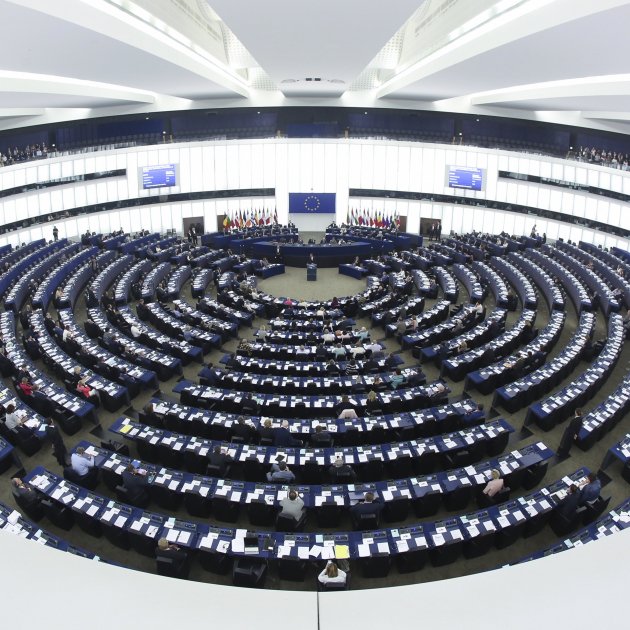The European Parliament is to send a mission to Spain in March to investigate espionage using Pegasus spyware. This was agreed on Tuesday by the committee investigating the use of this type of software in EU countries. The visit will take place on March 20th and 21st, after the European Parliament extended by three months the lifetime of a committee that initially had a mandate of a year and has already sent missions to Israel, Poland, Greece and Cyprus - and in February, it will travel to Hungary.
The decision of the parliamentary committee has arrived on the same day as the rapporteur of the committee, the Dutch liberal Sophie In 't Veld, put pressure on Spain and asked it to compensate the victims of the Pegasus espionage. Specifically, she presented a draft recommendation urging the Spanish state to "fully clarify" the cases. It is a text that affirms that in the Spanish state and in three other countries there have been "violations" in the implementation of European law regarding the use of espionage software - as well as criticizing the "lack of action" by the European Commission and member states to address the "threat to democracy" posed by such espionage.
Criticism of Spain over Pegasus
The draft asserts that the espionage in Spain has two sides: that aimed at leaders of the Spanish government such as the prime minister, Pedro Sánchez; and Catalangate, aimed at leaders and other individuals connected to the Catalan independence movement. But the Spanish authorities have not given further explanations for the supposed reasons of national security, which In 't Veld said she regrets. In fact, the document criticizes the fact that member states use national security as a "pretext" to avoid giving explanations about espionage cases and stresses that national security "does not exempt them from their obligation to comply with the law". For that reason, the rapporteur asked the community executive to set a "common legal definition" of national security.
In that regard, the draft chastizes member states (such as Spain) for their "reluctance" to investigate the cyberattacks, and the "slow progress" and "lack of transparency" in judicial investigations. It also expresses regret at the response of the European Council - the body consisting of the heads of national governments - stating that its response has been "inadequate and contrary to the principles of loyal cooperation". "Neither the Council nor the Commission has the will to shed light on the espionage scandal," it underlines. Thus, the Dutch Liberal MEP has remarked that it is "indispensable" that there is the "necessary clarity" and "action on a European scale" to ensure that European legislation is respected. In short: that an "immediate" moratorium is needed on the sale, acquisition, transfer and use of the software while regulation for such spyware is drafted.
Pegasus committee chairman, fed up
Since "common European standards" are needed to regulate software like Pegasus, In 't Veld has drafted several proposals: that such software can only be used with judicial authorization, that it is authorized for a limited period of time and only in case of some crimes, for example. She has also proposed exempting journalists, lawyers and politicians from being spied on, as well as having "unlimited retroactive access" to messages. In any case, the whole report is a draft recommendation and the other MEPs will be able to submit amendments to the text - which will be voted individually on later in the committee, as well as the overall final recommendation. Finally, the text will be submitted to the full plenary of Parliament for its approval.
The chairman of the committee, the Dutch Christian Democratic representative Jeroen Lenaers, also lamented the lack of cooperation from member states to clarify the cases of espionage - after none of the invited countries decided to participate in a session dedicated to the intelligence services. "Personally, I am beginning to be fed up with this attitude from the member states", he criticized, at the same time denouncing that the majority of states decide "systematically" not to cooperate with the committee.
European parties, on Pegasus
After the speech by the chairperson, the rapporteur presented the draft recommendation and warned that the "abuse" of espionage software is an "attack on democracy". "We should all be very concerned. It's not a national affair, it's a European affair," warned In 't Veld. He also lamented the attitude of the European Commission and the Member States, and called for rules to regulate software such as Pegasus. "We have rules that are not being applied and the Commission is deliberately choosing not to give tools," he remarked. And he added: "It chooses not to answer the European Parliament's questions. This is very serious."
Spanish People's Party MEP Juan Ignacio Zoido acknowledged that the text is a "good starting point", although he promised that his group will present amendments. "The recommendations will be the most important political text that will come out of the committee. We need a balanced document," he asserted. For his part, the Austrian Social Democrat Hannes Heide backed the proposal for a moratorium on the sale and use of spyware - as well as a common definition of what national security is. German Greens MEP Hannah Neumann called for the proposals to be "implemented", while fellow German MEP Cornelia Ernst, of the Left group, went straight for a ban on spyware. "I don't think it can be reformed", she indicated, before regretting that the committee had not yet come out in favour of a mission to Spain. A mission that was finally agreed on and will take place in March.
